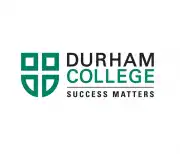Engineering programs in Canada for international students
- Advantages of Engineering Education in Canada
- Formats and Levels of Engineering Programs in Canada
- Top Engineering Universities in Canada
- Additional Recommended Engineering Schools in Canada
- How to Apply for Engineering Programs in Canada
- Tuition Fees for Engineering Programs in Canada
- Scholarships and Grants for Engineering Programs in Canada
- Language of Instruction and Preparation for Engineering Programs in Canada
- Career Prospects After Engineering Education in Canada
- Is It Worth Studying Engineering Programs in Canada
- Frequently Asked Questions

Diploma - Electrical Engineering Technician (Control Systems)
Humber College Institute of Technology & Advanced Learning, Toronto, CanadaThree main topics of electrical engineering are covered in Humber's Electrical Engineering Technician-Control Systems diploma program:
- power industry
- process instrumentation and control
- programmable logic controllers (PLCs)
We guarantee that…

Diploma - Heating, Refrigeration and Air Conditioning Technician
Humber College Institute of Technology & Advanced Learning, Toronto, CanadaThe diploma program for Heating, Refrigeration, and Air Conditioning Technicians at Humber prepares you for a job as a technician with the ability to design, install, and maintain a wide range of energy systems. You will learn about the installation and maintenance procedures for heating and air conditioning…

Certificate - Carpentry and Renovation Techniques
Humber College Institute of Technology & Advanced Learning, Toronto, CanadaAmong the three programs that make up the Carpentry-Construction division, Humber offers a certificate in Carpentry and Renovation Techniques. In addition to the advanced diploma in construction engineering technology and the building construction technician diploma, students in this program learn…

Advanced Diploma - Biomedical Engineering Technology
Durham CollegeBoth internationally and in Canada, the healthcare sector is expanding quickly. Health care providers now depend on the technology to operate correctly, be readily available, and be managed cost-effectively and efficiently by qualified biomedical engineering technologists. This is because healthcare…

Diploma - Carpentry (Building Construction Technician)
Durham CollegeThere is a need for construction workers with the knowledge and abilities to operate in the developing building construction business in today's skills-specific labor market. This program will give you the fundamental skills you need to enter the modern construction sector and a solid understanding…

Diploma - Civil Engineering Technician
Durham CollegeThe best way to begin a fulfilling entry-level career in the field of civil engineering is through the Civil Engineering Technician program. You will gain expertise in electronic surveying, computer-aided design and drafting (CAD), geographic information systems (GIS), and testing building materials.…

Advanced Diploma - Civil Engineering Technology
Durham CollegeEvery element of our infrastructure or physical surroundings is impacted by civil engineering.
In line with various Canadian Civil Engineering Codes, Quality Control Standards, and Regulations, students pursuing a career as Civil Engineering Technologists will gain exposure to contemporary…

Certificate - Mechanical Techniques (Plumbing)
Durham CollegeTake up a wrench and enter the plumbing industry, a highly sought-after professional vocation. Employers will value the skills you will gain from this one-year certificate program, which will put you ahead of the competition for entry-level plumbing positions, including apprenticeships.
You…

Certificate - Trades Fundamentals
Durham CollegeTry out a few different trades to find which one best suits you! You will be exposed to and gain experience in a range of topics in this program that will assist you in selecting an apprenticeship or skilled trade. In order to help you solidify your career path in the skilled trades, the following…

Diploma - Welding Engineering Technician
Durham CollegeJoin this expanding industry by learning welding methods and skills to make sure you're equipped for the work. This program will teach you how to weld in a variety of ways and will also teach you how to read blueprints and fit metal. In addition, you'll learn about metals and their special qualities…
Advantages of Engineering Education in Canada
Canada remains one of the leading countries for higher engineering education. Studying here combines academic theory and practice, which is especially important for technical specialties. Here are the key advantages:
- Internationally recognized diplomas that meet the standards of the USA, UK, and Europe.
- High positions of Canadian universities in world rankings (QS, THE, ARWU).
- Modern laboratories and research centers at universities.
- Strong partnerships between universities and industry.
- Opportunity to participate in paid internships (co-op programs).
- Programs in English and French.
- Legal employment opportunity after graduation through the Post-Graduation Work Permit (PGWP).
- Safe, tolerant, and multicultural environment.
- Relatively affordable tuition fees compared to the USA.
Formats and Levels of Engineering Programs in Canada
Canada offers a wide range of programs for students with different levels of preparation:
- Bachelor's Degree (Bachelor of Engineering — B.Eng or Bachelor of Applied Science — BASc) — classic four-year engineering education.
- Master's Degree (Master of Engineering — M.Eng or Master of Applied Science — MASc) — duration 1-2 years, allows deepening knowledge and participating in research.
- PhD — program for future scientists and researchers, duration 3-5 years.
- Diploma and Certificate Programs — offered by colleges, duration from 1 to 3 years, with a focus on practical skills.
- Cooperative Programs (Co-op) — combining studies with paid internships.
- Preparatory Programs (Foundation, Pathway) — for those who need to improve their academic level or language skills.
Top Engineering Universities in Canada
| University | Program | Tuition fee for international students (per year) | World ranking | Comment |
|---|---|---|---|---|
| University of Toronto | Bachelor of Applied Science (Engineering) | from 62,000 CAD | Top 30 | Leader in the number of scientific publications and research, the strongest engineering school in the country. |
| University of British Columbia (UBC) | Bachelor of Applied Science (Engineering) | from 58,000 CAD | Top 40 | Strong industry connections, the Vancouver campus is renowned for quality of life and environmental friendliness. |
| McGill University | Bachelor of Engineering | from 54,000 CAD | Top 50 | Anglo-French academic environment, developed international student network. |
| University of Waterloo | Bachelor of Applied Science (Engineering) | from 55,000 CAD | Top 100 | Canadian leader in technical specialties, known for the largest co-op program. |
| McMaster University | Bachelor of Engineering | from 49,000 CAD | Top 150 | Strong programs in biomedical engineering, mechanical engineering, and IT sectors. |
Additional Recommended Engineering Schools in Canada
| University | Program | Tuition fee for international students (per year) | World ranking | Comment |
|---|---|---|---|---|
| Humber College | Diploma in Engineering Technology | from 22,000 CAD | - | Focus on practical learning, quick entry into the job market. |
| Centennial College | Advanced Diploma in Engineering Technology | from 21,000 CAD | - | High-tech laboratories and modern workshops. |
| George Brown College | Mechanical Engineering Technology | from 23,000 CAD | - | Modern equipment, emphasis on projects and internships. |
How to Apply for Engineering Programs in Canada
Step-by-step process:
- Choose an educational institution and program.
-
Prepare the required documents:
- High school diploma or bachelor's/master's degree.
- Official transcripts.
- Language proficiency certificates (IELTS, TOEFL, Duolingo).
- Resume.
- Statement of purpose.
- Letters of recommendation (usually 2-3).
- Portfolio (for certain engineering fields).
- Submit an online application (directly to the university or through the OUAC platform).
- Complete an interview (if required).
- Receive an admission decision.
Additional exams such as SAT, ACT, GRE may be required, especially for prestigious universities.
Tuition Fees for Engineering Programs in Canada
Financial aspects:
- Bachelor's Degree: from 40,000 to 65,000 CAD per year.
- Master's Degree: from 25,000 to 45,000 CAD per year.
- PhD: from 10,000 to 25,000 CAD per year (often scholarships cover expenses).
- Colleges: from 18,000 to 25,000 CAD per year.
Estimated monthly expenses:
- Accommodation: from 900 to 1,800 CAD.
- Food: about 400-600 CAD.
- Transportation: from 100 CAD.
- Study materials and insurance: about 1,500 CAD per year.
Scholarships and Grants for Engineering Programs in Canada
Canada actively supports international students through grants and scholarships:
- Lester B. Pearson International Scholarship — prestigious scholarship for talented undergraduates.
- Vanier Canada Graduate Scholarships — funding for graduate students with leadership potential.
- Ontario Graduate Scholarship — support for master's and PhD students.
- Canada Graduate Scholarships — Master's Program — assistance at the master's level.
Selection criteria:
- Academic achievements.
- Leadership and research abilities.
- Involvement in volunteer or social projects.
Application deadlines: from December to March, individually for each program.
Language of Instruction and Preparation for Engineering Programs in Canada
Language requirements:
- IELTS: minimum 6.5 (no less than 6.0 in each component).
- TOEFL: minimum 86 points (some universities require 90+).
- Duolingo: from 115 points.
For those who do not meet the requirements, Pathway programs are recommended, combining language study and academic disciplines.
Some programs are available in French, especially in the province of Quebec.
Career Prospects After Engineering Education in Canada
Engineering graduates are in demand worldwide and especially in Canada:
Popular fields:
- Civil and industrial construction.
- Electrical engineering and power engineering.
- Mechanical engineering.
- Automation and robotics.
- Programming and IT engineering.
- Biomedical engineering.
- Environmental engineering.
Major employers:
- Bombardier (aerospace).
- SNC-Lavalin (construction and infrastructure).
- Siemens Canada (technology and automation).
- General Motors (mechanical engineering).
- IBM Canada (IT solutions).
- Hydro-Québec (power engineering).
- Hatch Ltd. (engineering consulting).
Internships through co-op programs significantly increase chances of employment immediately after graduation.
Is It Worth Studying Engineering Programs in Canada
Studying engineering in Canada is an investment in the future.
Advantages:
- High quality of education.
- Opportunities for practical experience and employment.
- Competitive tuition fees compared to the USA.
- Simple procedure for obtaining a work visa after studies.
- Favorable immigration policy.
Comparison:
- USA — more expensive education and more complex visa policy.
- Europe — some programs are cheaper, but paid internships and work visas are less common.
Canada optimally combines accessibility, quality, and prospects.
Frequently Asked Questions
1. Which engineering fields are most in demand in Canada?
Civil engineering, IT engineering, mechanical engineering, power engineering, biomedical engineering.
2. Can I stay to work in Canada after completing an engineering program?
Yes, through the Post-Graduation Work Permit, graduates can work for up to 3 years.
3. What is the minimum English level required for admission to engineering programs in Canada?
Usually IELTS 6.5 or TOEFL 86+ is required, higher for some programs.
4. What scholarships are available for international students in engineering programs?
University and government scholarships, including Lester B. Pearson and Vanier Canada.
5. Which Canadian universities lead in engineering specialties?
University of Toronto, UBC, McGill, Waterloo, McMaster.
6. Is it difficult to get admitted to engineering programs in Canada?
The competition is high, requiring a high GPA, IELTS/TOEFL certificates, and motivational materials.
7. Which companies in Canada hire engineering graduates?
Bombardier, SNC-Lavalin, Siemens Canada, General Motors, IBM Canada.
8. Is there an opportunity to prepare for admission to engineering programs in Canada in advance?
Yes, Pathway and Foundation programs are available.
9. How much does it cost to study engineering in Canada?
From 18,000 to 65,000 CAD per year depending on the program level and institution.
10. Can I study engineering in Canada in French?
Yes, some universities in Quebec offer French-language programs.